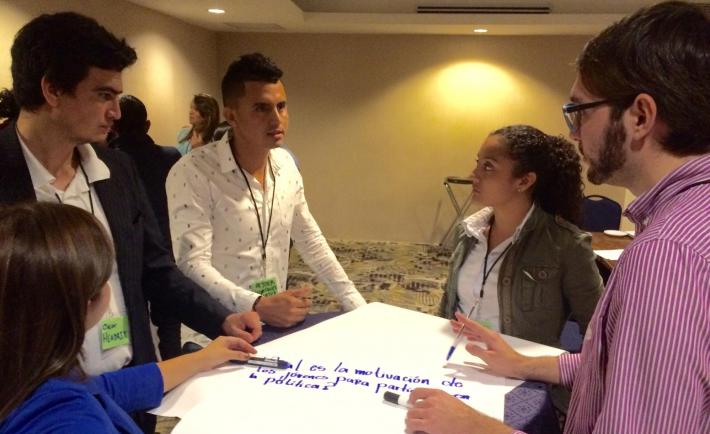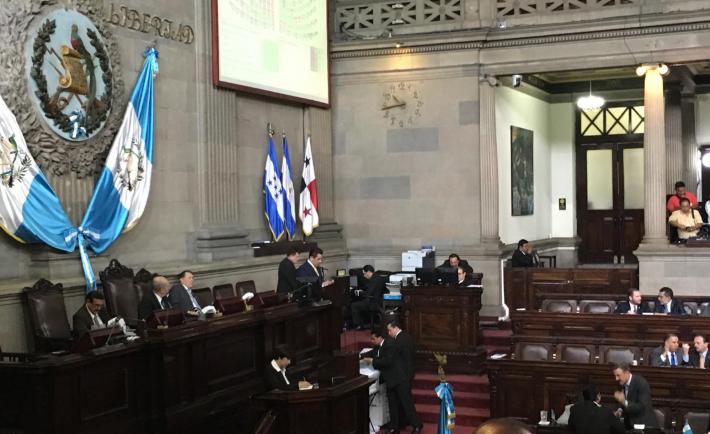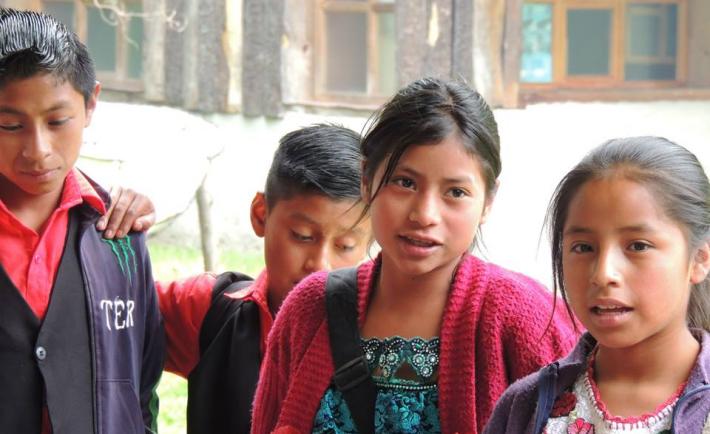Twelve young Latin American political leaders and activists recently gathered in Guatemala for an NDI-led workshop on youth political participation. Conversations ranged from what motivates youth to get involved in politics, to how sociocultural norms about youth affect their work, and what tactics youth have used to elevate their political voices in their home countries of El Salvador, Colombia, Guatemala, Honduras, Nicaragua and Mexico. Amidst widespread myths about youth political apathy, these diverse young activists represent a generation that is motivated to build more inclusive, democratic societies.
Youth are driving change in Latin America
Women Have the Power to Lead Differently
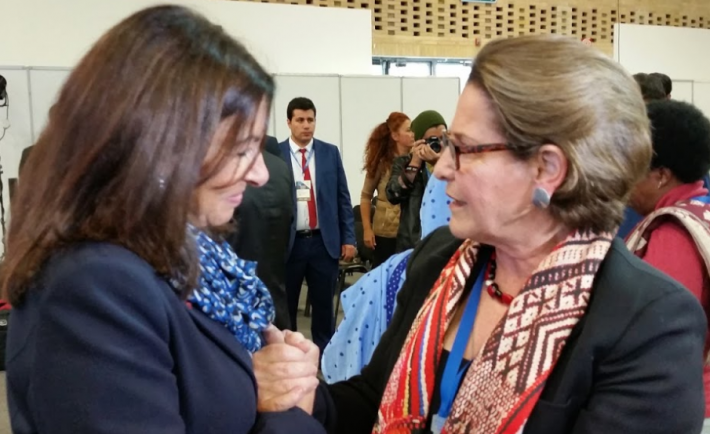
Susana Villarán (right) speaks with Anne Hidalgo, mayor of Paris, at the United Cities and Local Governments World Summit, in Bogota (October 2016).
"The world is not built or transformed without half of humanity, and because it is so difficult for us as women to achieve power and at the highest level in our cities, our commitment is to transform them," said Anne Hidalgo, mayor of Paris, at the United Cities and Local Government World Summit. Our delegation -- composed of women mayors and social leaders convened by the National Democratic Institute -- had the objective to radically deepen the gender perspective and the policies in favor of the rights of women living in cities embodied in the 175 articles of the New Urban Agenda (NUA) approved in Quito by the member states of the United Nations.
Guatemala’s Progress Toward Reform Still Faces Many Challenges
In late October, I joined a staff delegation of the House Democracy Partnership (HDP) in its assessment mission to explore a potential partnership between the U.S. Congress and the Congress of Guatemala, a unicameral body made up of 158 deputies elected for four-year terms. Having spent a good deal of time working to end the Central American wars in the 1980s as a congressional staffer in the U.S. House of Representatives, it was my first trip to the region in nearly three decades. I returned to the U.S. hopeful and cautiously optimistic that Guatemala may be turning a corner in its democratic development while still working to overcome the legacy of the brutal civil war that resulted in hundreds of thousands of victims from 1960-1996.
Supporting Political Processes to Transition Out of Conflict
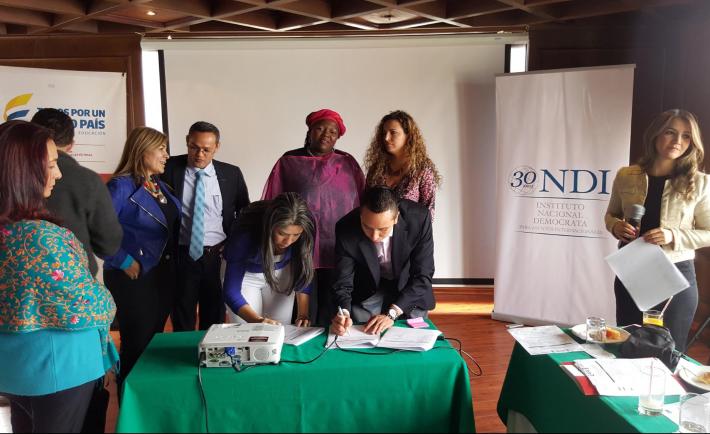
Presidents of federations of local assembly and council members and the Victims Unit Subdirector for Participation sign a collective reparations plan.
Countries transitioning out of violent conflict are more successful in achieving lasting peace when representative institutions are inclusive and manage reconciliation processes fairly. The end of violent conflict does not guarantee a political voice for former combatants or reintegration into society. By its nature, violence also generates victims, who must be central actors in the development of peace accords, reparations plans and transitional justice systems. In a post-conflict context, the development of transitional democratic political processes is necessary for fostering reconciliation and building peace. In this post – the fifth in NDI's series on resilient democracy – NDI Program Officer Austin Robles examines the peace negotiations and reconciliation process currently underway in Colombia.
Promoting Democratic Governance of the Security Sector

Members of the Defense and Security Commission of Burkina Faso's National Assembly meet members of the armed forces during an informational visit to a military base in Kaya.
Violence and crime pose serious threats to citizen security. A lack of response to these threats from authorities erodes public trust in government institutions and weakens prospects for stable democracy. Maintaining the peace and ensuring the security of citizens is necessary for a democracy to develop and endure. Likewise, democratic institutions, such as parliaments, media and civil society, help guarantee a focus on citizen interest and public good, especially related to civilian oversight of the security sector. Threats to citizen security are particularly notable in West Africa’s Sahel region and Central America’s Northern Triangle, areas where NDI works to bridge the gap between citizens’ security needs and the state’s ability to meet them.
International Leaders from Over 100 Countries to Observe Democratic National Convention
.jpg)
Philadelphia skyline at night. Credit: Flickr user Tyler Sprague (CC BY-NC)
Every four years NDI has the honor of hosting the International Leaders Forum (#ILF2016) -- a week-long series of non-partisan events for international leaders organized around the Democratic National Convention. The convention is held by the U.S. Democratic Party to nominate a presidential and vice presidential candidate. The Forum -- held in Philadelphia, Pennsylvania, this year -- carries on NDI’s tradition of bringing together international leaders to experience the convention and to learn about the U.S. political system. Nearly 400 current and former heads of government, ambassadors, cabinet ministers, parliamentarians, and leaders of political parties from over 100 countries will participate.
From Election Observation to Government Oversight: What’s Next for Guatemala?
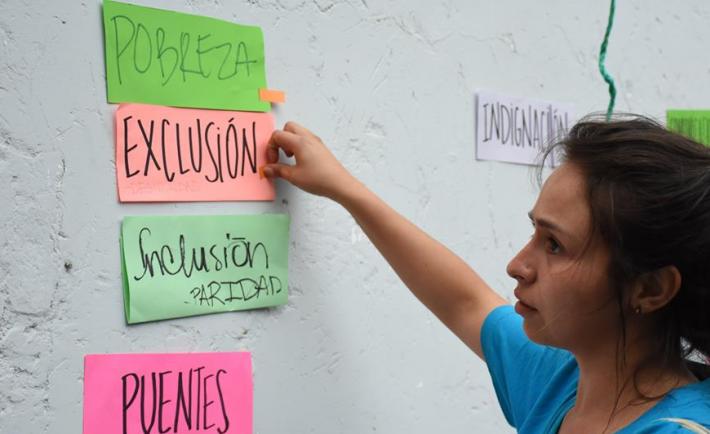
A young Guatemalan woman participates in an activity organized by civil society to reflect on the political crisis and future priorities. Credit: Pamela Saravia
As this blog series has highlighted, the 2015 Guatemalan elections were unique in many regards. Citizen protests resulted in the resignation and arrest of the president and vice president on corruption charges. Voter turnout was the highest since the return to democracy in Guatemala. The presumptive winner, the runner-up in elections four years earlier who was leading in the polls, failed to make it to the second round. And electoral violence was lower than expected and lower than during recent electoral processes. The question then becomes, what’s next for Guatemala?
Indigenous Guatemalans Call for Meaningful Representation
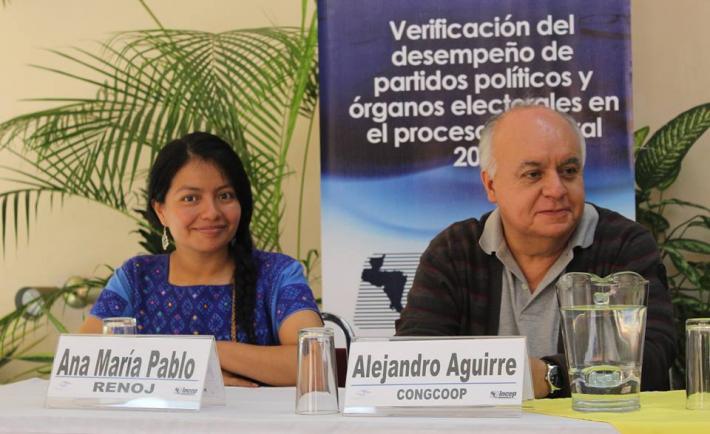
Anixh Ana María Pablo Tercero prepares to present election observation results at a press conference.
Large numbers of Guatemalan citizens are excluded from political life. Indigenous communities are among the most marginalized, as they face both institutional and cultural barriers in the country’s political system. Since the 2006 electoral reforms and during the subsequent three elections, Guatemala has seen important steps forward in terms of increased political participation; however, challenges remain in translating participation into meaningful representation.
Observation Network Unites to Improve the Transparency of Guatemalan Elections
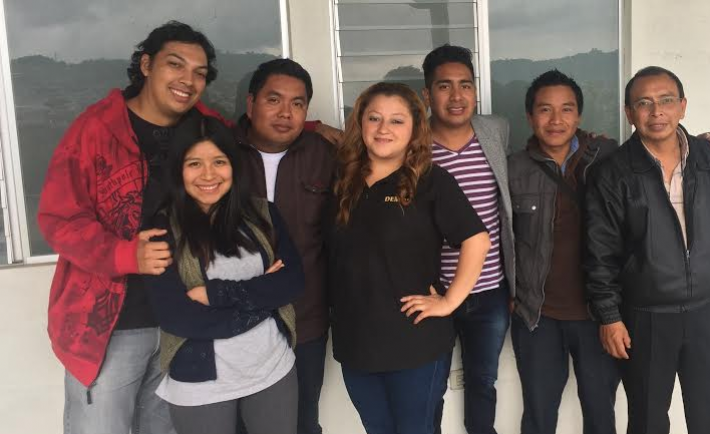
Members of the DEMOS network. Left to right: Jorge Barriento, Aracsala Chang, Orlando Cun, Yesica Hernandez, Fredy Sitavi, Jose Cuxil, and Ronald Baldomiro.
For Yesica Hernández, an observer from Quetzaltenango, playing an active role in political life in her country is a civic obligation. At just 24 years old, Yesica has worked with the Central American Institute for the Study of Social Democracy (DEMOS) for nearly five years and already observed two elections. She sees election observation as critical to involving citizens, especially youth, in politics and holding political parties and politicians accountable to the public.
The Importance of Mayan Languages in Constructing a Democratic Society in Guatemala
Equal participation of citizens in politics is essential for strengthening democracy. Citizen participation must be inclusive, representative and intercultural. One of the foundations of democracy is respect for human rights, which includes recognition of individual and collective rights of indigenous peoples. And one of these collective rights lies precisely in the use of indigenous languages. This is especially true in Guatemala, where indigenous peoples represent a large and diverse, but frequently marginalized, population.

